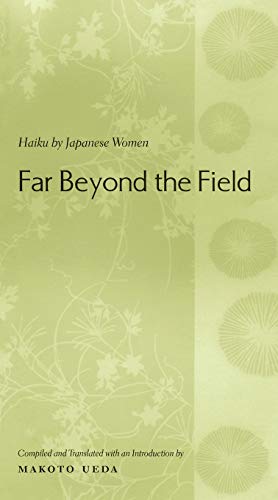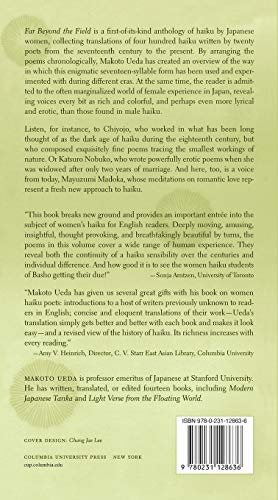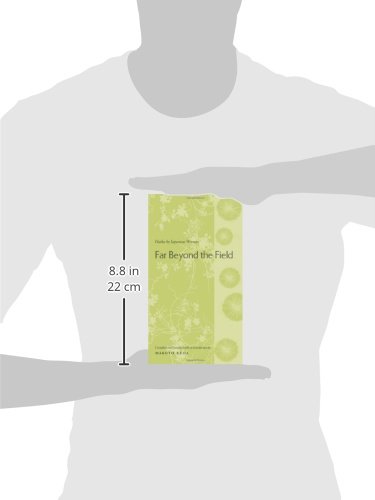Customer Services
Copyright © 2025 Desertcart Holdings Limited
Desert Online General Trading LLC
Warehouse # 7, 4th Street, Umm Ramool, Dubai, 30183, Dubai




Full description not available
J**Y
A true gem...don’t miss it because the cover is plain
This anthology of haiku is a real gem. It includes numerous haiku that are rarely seen in other books. Don’t give this a miss because of the plain cover.
H**N
Buy the book...!!!
With an increasing interest in women's poetry and also asian styles of poetry (haiku, tanka, sijo, haibun), I was amazed to find only one review for this wonderful collection of 400 haiku by 20 women poets from the 17th century to the present. Each poet has a brief biography followed by an assortment of her haiku. Makoto Ueda does a wonderful job of compiling and translating the poems and the introduction alone makes the book a worthwhile addition to any library.A few haiku to whet your appetite:toward thin icemy shadow moves, movestill it's drowned- Mitsuhashi Takajothe bamboo plantshedding its sheathin front of women- Yoshino Yoshikomurmur of wavesunheeded by today'swild daffodils- Inahata TeikoSo order already!
V**S
A masterpiece!
Buy this book! It is the most sensual of works; a hundred tiny bites of something exquisitely delicious. This is a quality book and a great intro to haiku. If you love this book then rush out and buy Masajo Suzuki's Love poems.
X**N
A well presented anthology of haiku by Japanese women writers
Makoto Ueda has compiled and translated this anthology of haiku by twenty Japanese women writers from the 17th century to the start of the 21st century and I thoroughly enjoyed reading this collection of work. As with the male haiku poets, the style of writing shifts over time and Ueda gives a helpful introduction at the beginning of each section, outlining the teachers and peers the poet was influenced by. For example, Kawai Chigetsu (1634-1718) was a student of Basho and also a close friend outside the teacher-student relationship. His influence in her haiku is present in the way that her influence may be present in Basho's haiku too.I particularly enjoyed Tagami Kikusha's (1753-1826) poetry, who dedicated her life to poetry and traveled to Northeastern Japan, tracing Basho's itenerary from 'The Narrow Road to the Deep North' in reverse order.This is a book I will continue to revisit whilst researching some of the female poets' work outside of this book too.As with so many translated works, I do get the sense that something that was present in the originals has been lost, and something new has been added, with the best of intentions, in these interpretations. I would be interested to read more from these poets, especially when translated by a female interpreter.
M**I
una raccolta meravigliosa
una raccolta di haiku tutta al femminile; un meraviglioso viaggio nei secoli attraverso gli occhi e il sentire delle donne Giapponesi
D**Y
Beautiful and rare poetry
These haiku are all by women poets who somehow managed to write despite the unfair inequality between the sexes. There are many beautiful and original haiku as well as stunning magical moments here. A must read.
S**A
Five Stars
Great book!
Trustpilot
2 weeks ago
3 weeks ago